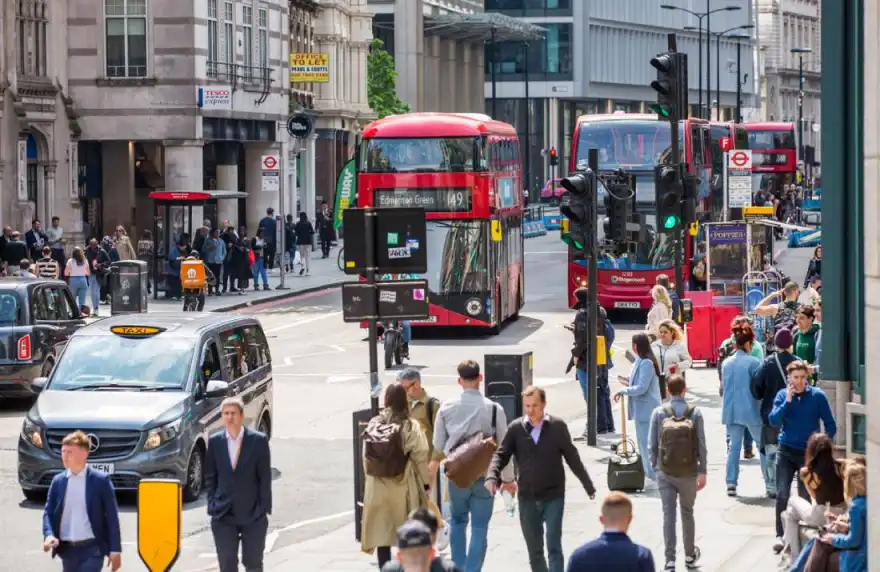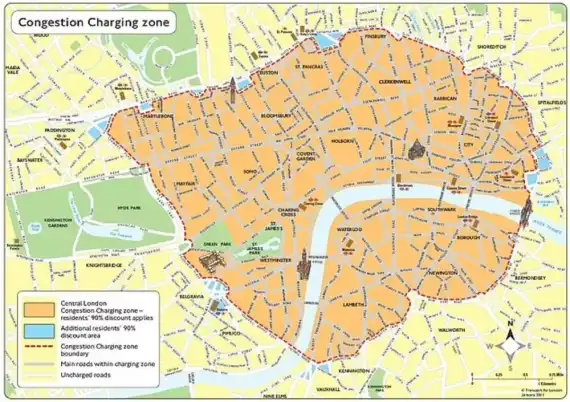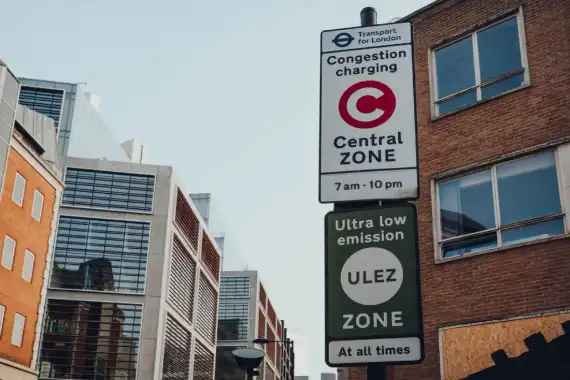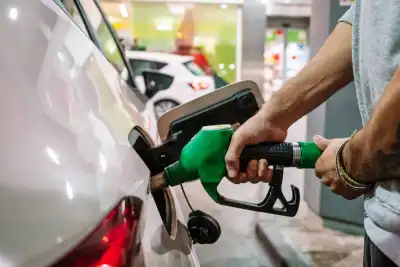
Transport for London (TfL) has announced that the Congestion Charge for driving in central London will increase by 20%, rising from £15 to £18 per day starting 2 January 2026. This marks the first increase since 2020.
The Congestion Charge zone covers central London, stretching from Mayfair to Tower Bridge (east-west) and from Euston Road to Vauxhall (north-south). Alongside the price hike, TfL will end discounts for petrol and diesel cars entering the zone.
TfL says the increase aims to reduce traffic congestion, promote electric vehicle use, and encourage sustainable travel across the city.
Environmental groups have welcomed the move. However, some business leaders are concerned that it will raise costs for electric van drivers, who will now face charges—albeit at a discounted rate.

Critics argue that London Mayor Sadiq Khan is using the charge to pressure motorists while also generating revenue.
With this rise, the daily cost to drive an older petrol or diesel vehicle in central London will be £30.50, when combined with the £12.50 Ultra-Low Emission Zone (ULEZ) fee.
For someone commuting on 253 working days a year, this increase could mean an extra £759 in charges compared to 2025.
TfL references a report from Inrix showing that in 2024, congestion cost London £3.85 billion in lost earnings, with drivers spending an average of 101 hours stuck in traffic.
A public consultation on the proposed changes opened today and will run until 4 August, inviting Londoners to share their views.
TfL states congestion continues to negatively impact businesses, bus users, and essential services, and argues the 20% rise is justified—especially since it’s below the inflation rate since the last price increase.
The last hike, in June 2020, raised the charge by 30%, from £11.50 to £15.
TfL also revealed plans to increase the Congestion Charge annually in line with Tube fare rises—currently inflation plus 1% or less. These future increases will apply only to the Congestion Charge, not the ULEZ, which will remain at £12.50 daily.
Without the increase next year, TfL estimates 2,200 more vehicles would enter the Congestion Charging Zone daily, which would worsen financial losses and harm air quality goals.
The consultation notes the charge increase supports the Mayor’s long-term vision for a cleaner London, encouraging more electric vehicles and public transport use. However, only 20% of UK car sales are electric, with demand plateauing recently.
From 2 January 2026, the charge for those who don’t pay in advance or use automatic payments will rise from £17.50 to £21 for payments made up to three days after driving in the zone.
Failure to pay within 48 hours results in a £180 penalty, reduced to £90 if settled within 14 days.

Electric vehicle drivers, currently exempt, will start paying a discounted rate of £13.50 per day if registered for auto-pay. Eco-friendly heavy goods vehicles (HGVs) and electric vans will receive a 50% discount.
TfL says van discounts reflect the difficulty of replacing some journeys with walking, cycling, or public transport.
From 2030, these discounts will reduce by half: electric cars will get a 12.5% discount, and HGVs a 25% discount.
The Federation of Small Businesses called the rise "swingeing," especially as small firms face tough decisions to stay competitive.
The consultation also proposes removing the 90% residents’ discount for new petrol and diesel car owners within the zone. Current residents will keep their discounts, but new applicants must drive electric vehicles to qualify.
TfL explains this will encourage switching to cleaner vehicles and give new residents time to adjust.
Deputy Mayor for Transport Seb Dance emphasized the importance of reducing congestion for London’s economy and praised the Congestion Charge’s past success. He urged the public to participate in the consultation.
TfL Director of Strategy Christina Calderato highlighted the charge’s role since 2003 in promoting walking, cycling, public transport, and cleaner vehicles, aiming to keep central London moving efficiently.
The Congestion Charging Zone was introduced in 2003, originally costing £5, and covers the area inside the London Inner Ring Road, including the City of London and West End.
The charge doubled to £10 in 2010, rose to £11.50 in 2014, and was temporarily increased to £15 during the COVID-19 pandemic before becoming permanent in June 2020.
The charge applies daily, Monday to Friday from 7:00am to 6:00pm, and weekends from noon to 6:00pm, with no charge between Christmas and New Year’s Day.




